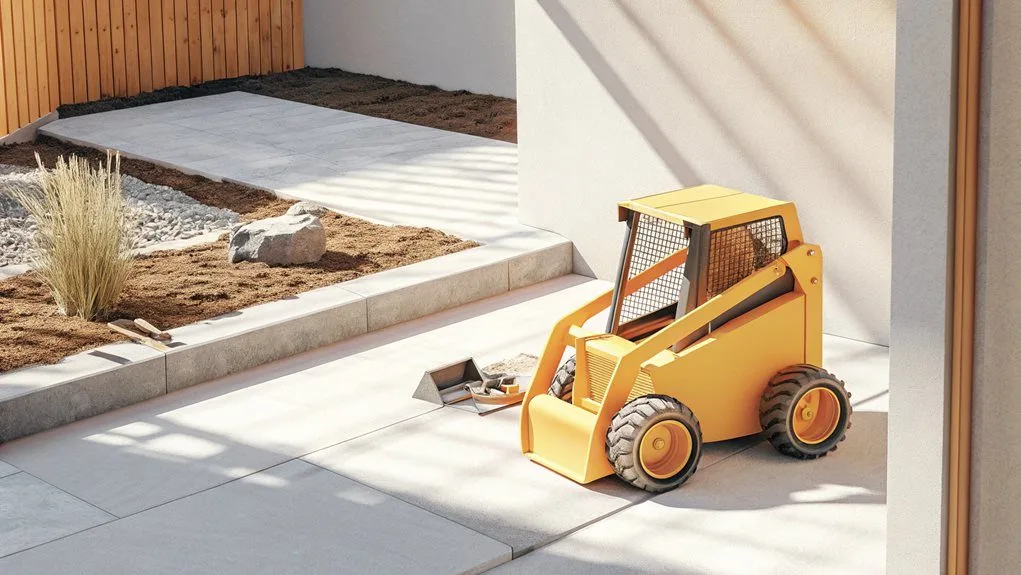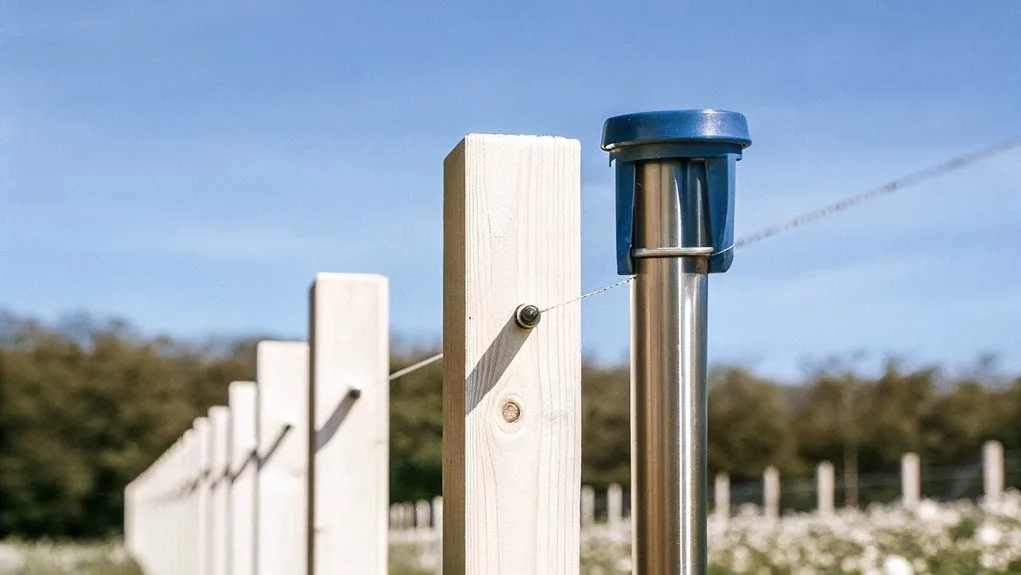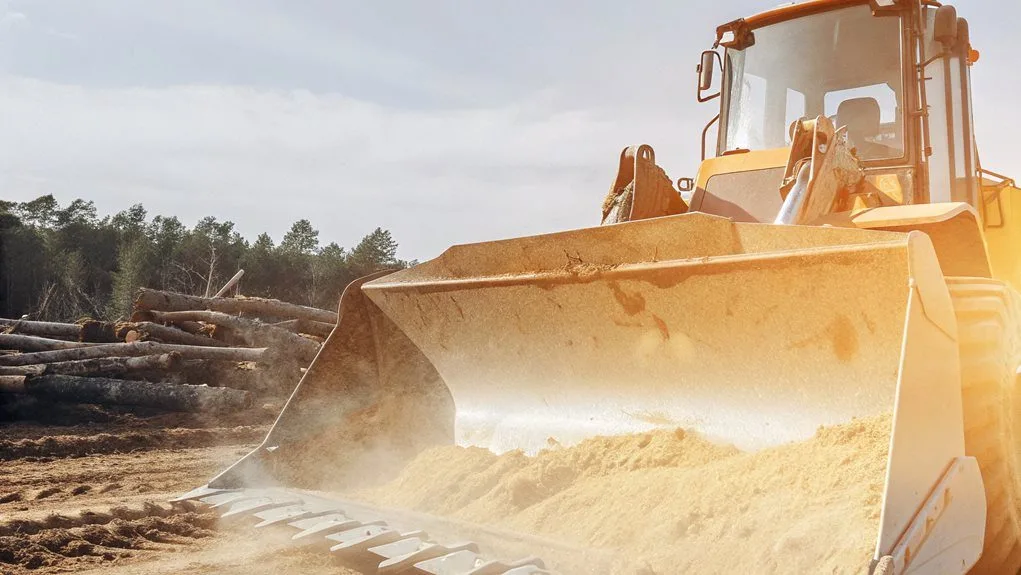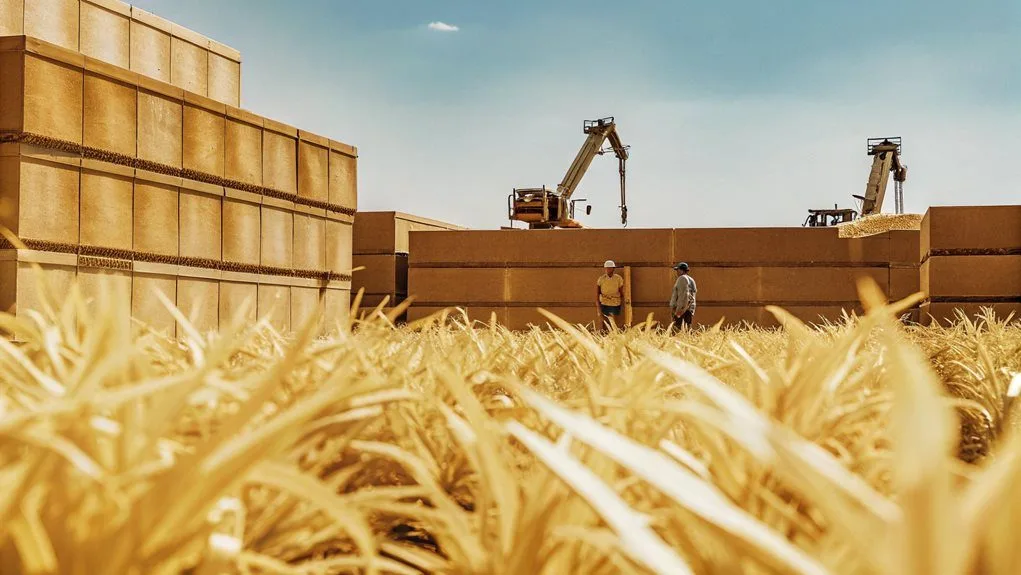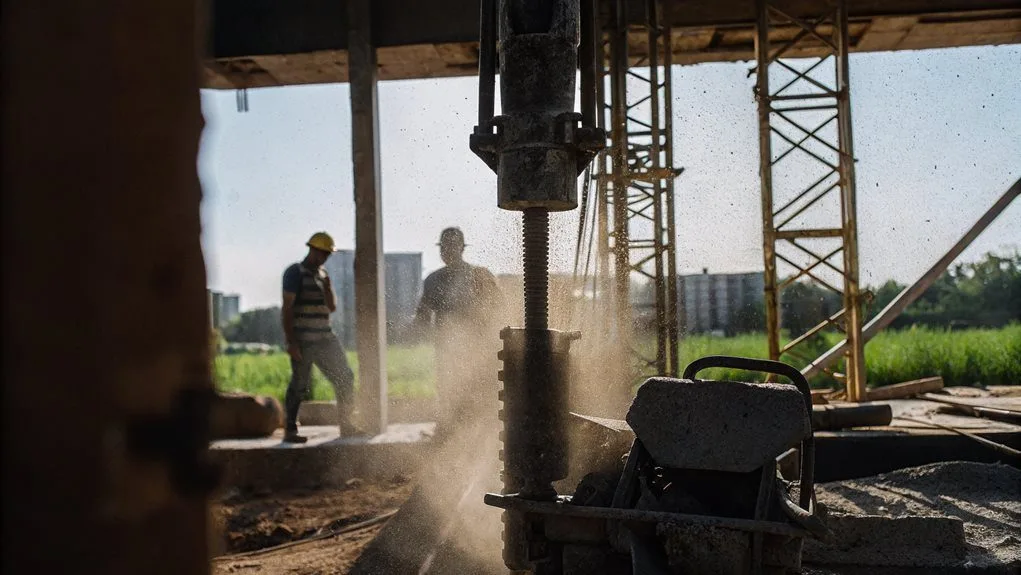Absolutely, you can hire a grader for small site grading—unless you fancy spending weekends wrestling with heavy machinery, that is. Hiring a professional saves you headaches from complicated drainage issues and guarantees your plot’s got the proper slope. Plus, let’s be honest, who wants to decipher local codes whilst dodging muddy pits?
With skill and the right tools, they can keep your budget from spiralling out of control. Professional graders understand the intricacies of soil movement, drainage requirements, and local regulations that could otherwise turn your project into a costly nightmare. Stick around, and you’ll learn more about how to make this whole grading process actually work in your favour!
Key Takeaways
- Hiring a grader saves you weekends from equipment handling and minimizes the risk of improper grading.
- Professional expertise ensures proper drainage, reducing erosion risk and enhancing site safety.
- Grading contractors have specialized tools to handle various soil types and regional weather challenges effectively.
- Costs for hiring a grader can range from R1.50 to R37.00 per square meter, depending on site specifics.
- Employing professionals helps ensure compliance with local regulations, maintaining structural stability and property value.
Evaluating the Benefits of Hiring a Grader for Small Projects
So, why bother hiring a grader for your small project?
Unless you fancy spending weekends battling with hired equipment, engaging a grader’s a clever choice.
Why waste your weekends wrestling with machinery? Hiring a grader is the smart move for your project.
They know what they’re about.
You won’t have to get your hands dirty—literally.
Imagine speeding up your timeline whilst enjoying a cup of coffee.
Sounds brilliant, doesn’t it?
Plus, they’ve got the kit and experience you haven’t.
Grading ensures proper drainage to prevent water pooling and potential damage, which is crucial for site preparation. This process is essential for maintaining safe and stable infrastructure systems.
You could purchase equipment, but let’s be honest—do you want to maintain that gear indefinitely?
Consider the compliance nightmare, too.
Graders keep you on the right side of local council regulations and municipal bylaws.
Safety? They’ve got that sorted.
Key Steps in the Small Site Grading Process
After deciding to hand over your grading woes to a professional, you might be wondering what comes next.
Well, here’s the scoop.
First, there’s the site assessment.
It’s not just about digging; it’s about knowing your land. This includes understanding how grading affects stormwater flow. A thorough site analysis assesses the natural features that may impact drainage and stability.
Next, you’ll want to clear the space.
Goodbye, weeds!
Then comes rough grading, where the ground receives its first makeover—think of it as contouring, but for dirt.
You can’t forget about drainage—because no one wants a swampy back garden, right?
Oh, and using heavy machinery?
It’s more fun than it sounds!
Finally, there’s inspection time, where you’ll hope everything’s up to scratch.
Ready to roll?
The Importance of Professional Expertise in Grading
Hiring a grading professional might sound like overkill, but it’s really not! Think about it: do you want water pooling by your foundation, or worse, flooding your neighbour’s vegetable garden? Experts know how to calculate gradients to guarantee proper drainage. By effectively grading your land, you can significantly reduce the risk of soil erosion that could harm both your property and the surrounding environment. Additionally, they understand how to create a leveled surface that promotes better landscaping and reduces maintenance over time. They’ve got all those specialised tools and software to model everything—when was the last time you did that on a Saturday afternoon?
Plus, well-graded land keeps your future projects intact. You wouldn’t want to hear your house settling like a creaky old ship, would you? And let’s be realistic, your property value will thank you. It’s like investing in a good pair of shoes. You might pay more upfront, but it sure beats the blisters down the road!
Challenges Faced in Small Site Grading
What happens when you throw a bunch of heavy machinery onto a small site? Well, let’s just say it’s not a party.
You’ve got soil types that can make or break your plans—clay loves to expand when wet, and you don’t want to deal with that mess. In particular, stable foundations are crucial, as they prevent structural damage that could arise from poor grading practices. Conducting a thorough soil analysis before starting can help you choose the right equipment and improve your chances of success.
Soil types can make or break your project—watch out for that pesky expanding clay when it gets wet!
Limited access means your machinery plays a game of Tetris, and sloped terrain? Good luck keeping it level.
Oh, and budget constraints can leave you scraping the bottom of the barrel for equipment with costs spiralling beyond R500,000 for proper grading kit.
Managing water flow? It’s like trying to herd cats, especially during Gauteng’s summer thunderstorms or the Western Cape’s winter rains.
All whilst worrying about keeping everything up to municipal and SANS building codes! If only grading came with a user manual that covered local conditions, right?
Welcome to the realm of small site grading in South Africa.
Economic and Environmental Considerations for Hiring Graders
When you plunge into the domain of hiring graders, you might feel like you’re stepping into a money pit—because, let’s face it, grading isn’t cheap. You could shell out anywhere from R1.50 to R37.00 per square metre. Yikes! And don’t forget those hourly rates for contractors, which can hit R3,300.
With so many costs stacking up—clearing, permits, and equipment—you may wonder if it’s worth it.
But hold your horses! Hiring experienced graders can actually save you money long-term. They help prevent erosion, which means fewer maintenance costs.
Plus, stable foundations make for safer sites. In the end, whilst the bills add up, a solid grading job could enhance your property value and make your outdoor space shine. Who wouldn’t want that?
Conclusion
So, you’ve weighed the pros and cons of hiring a grader for your little patch of dirt. It might feel like tossing a pebble into a pond, but every ripple counts, right? Sure, you could wrestle with a shovel and some questionable YouTube tutorials, but wouldn’t it be wiser to let a professional smooth things out? In the end, you don’t want to dig yourself deeper, literally and metaphorically. Go ahead, give those pros a call—they might just save your sanity!

